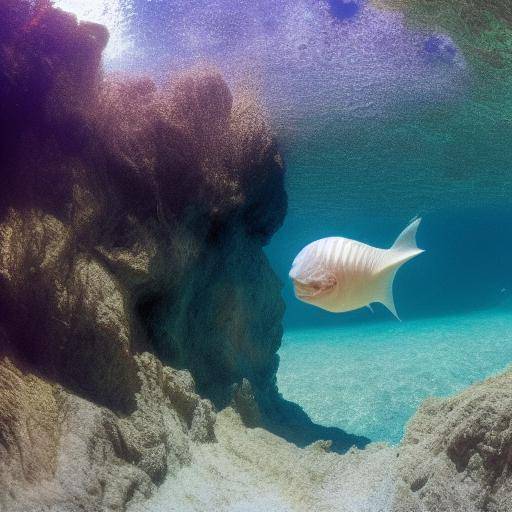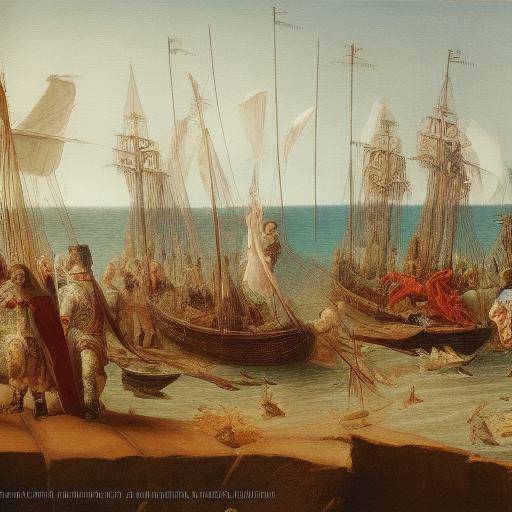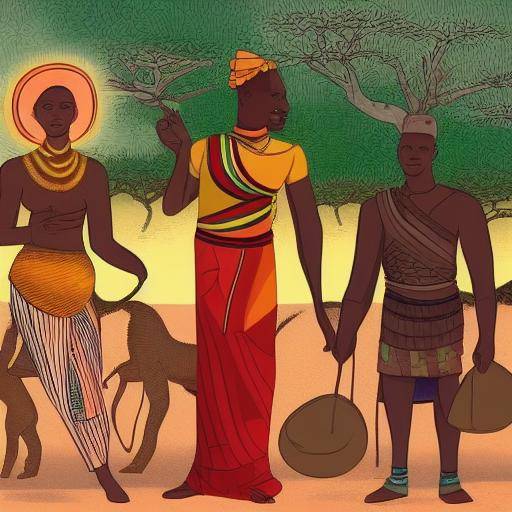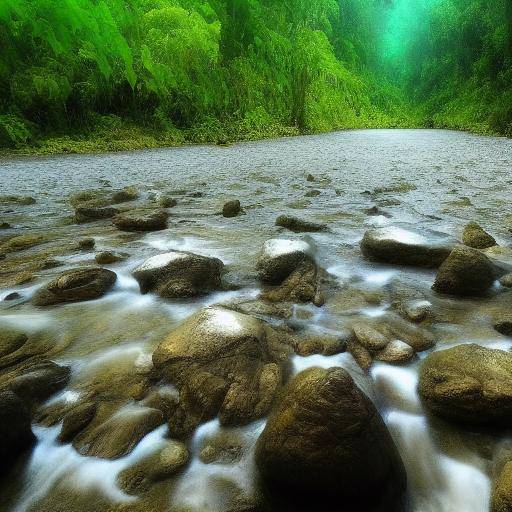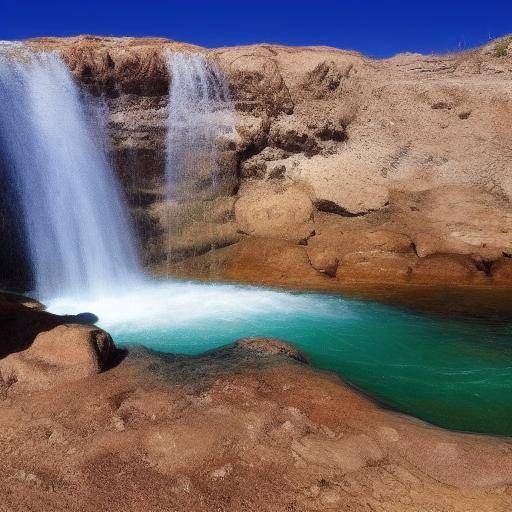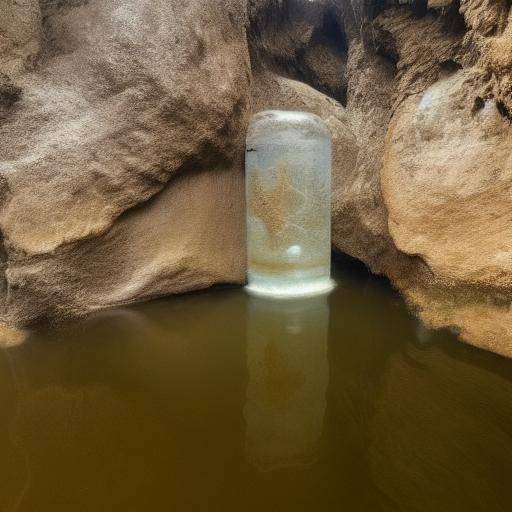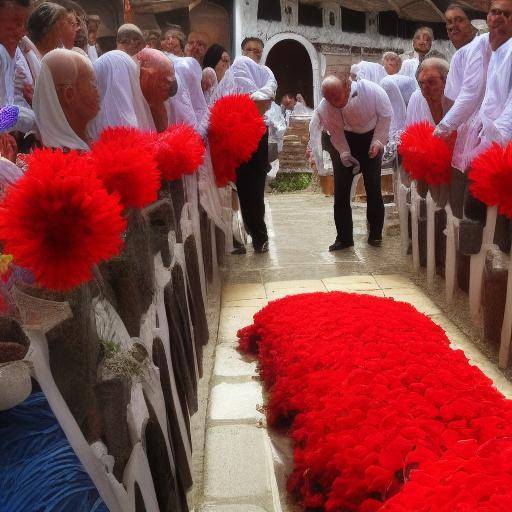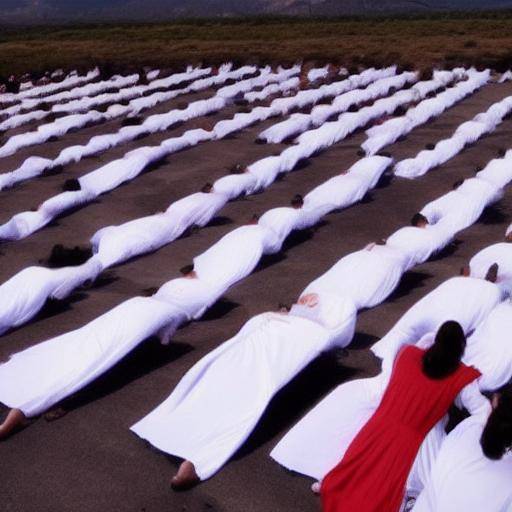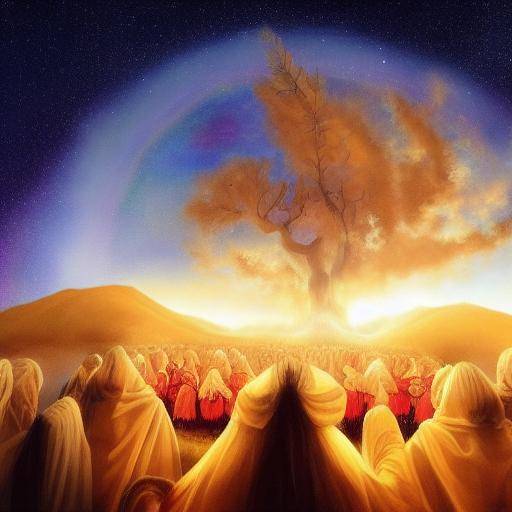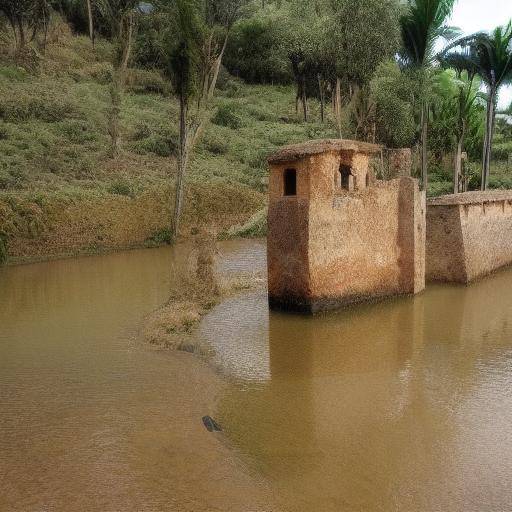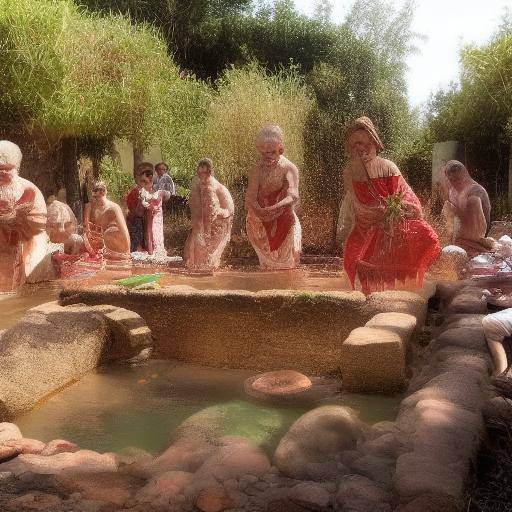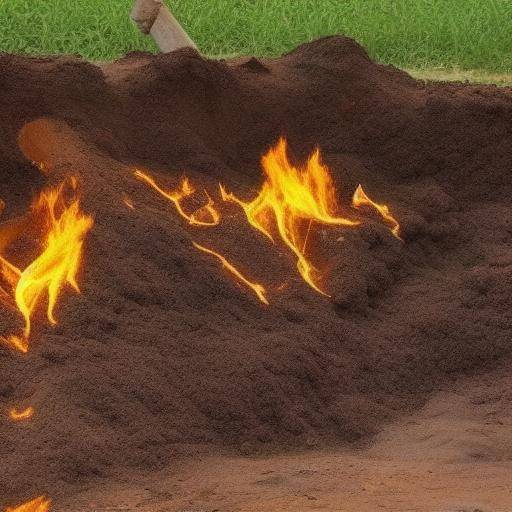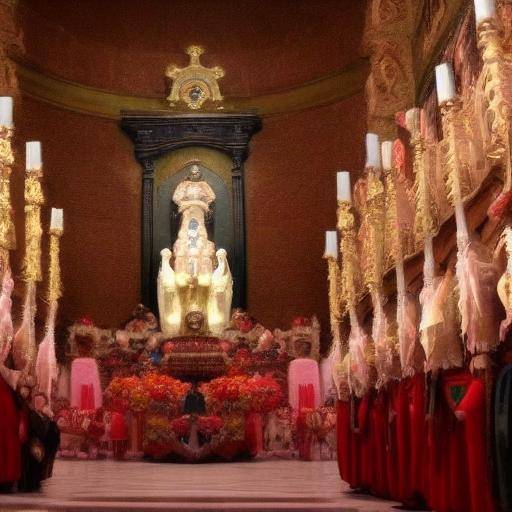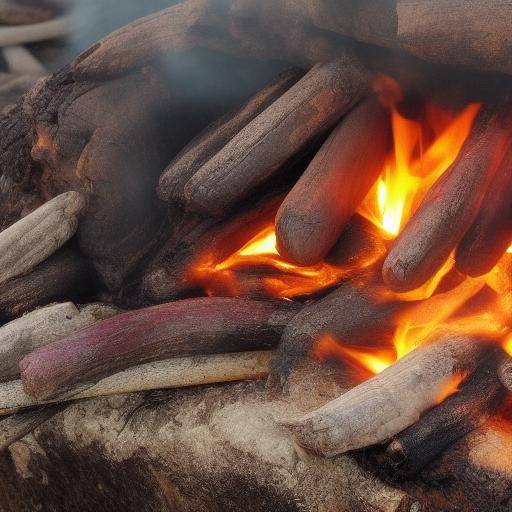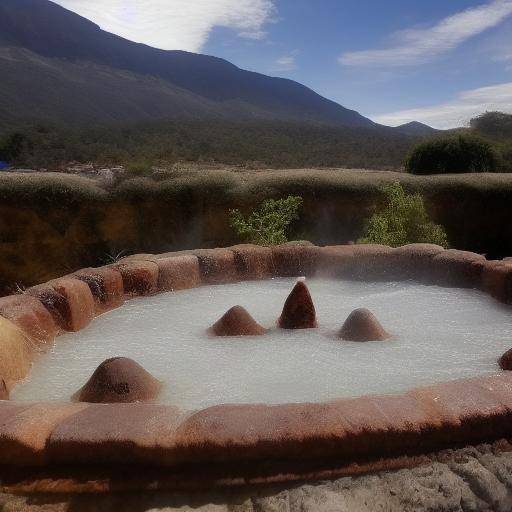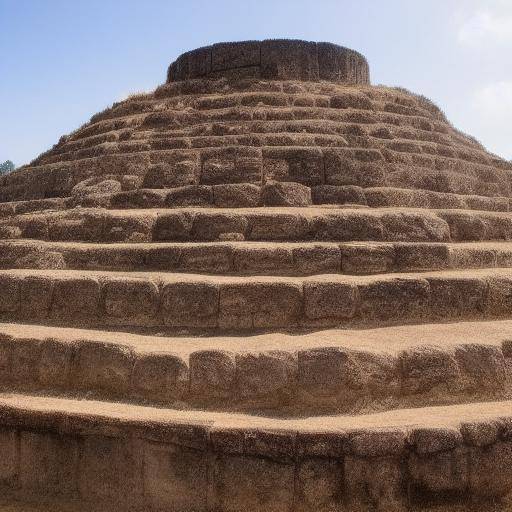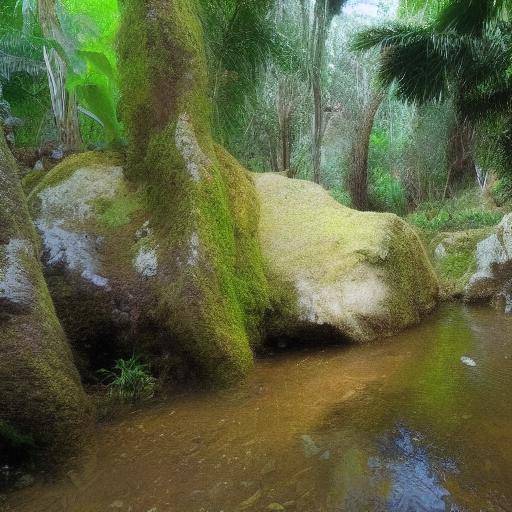
Introduction
Sacred rituals have been a fundamental part of diverse cultures throughout history. One of the most recurring elements in these rituals is water, which has been considered essential in both physical and spiritual terms. In this article, we will explore in depth the importance of water in sacred rituals, from its historical meaning to its relevance today. We will discover the links between water, sacred rituals and their importance, and how these interactions have shaped spiritual societies, beliefs and practices over time.
History and Background
Water has played a central role in sacred rituals since ancient times. In ancient civilizations such as Egyptian, Greek and Roman, water was considered a divine element, associated with the source of life and spiritual purification. The ceremonies of baptism, ablutions and water offerings were common in these cultures, symbolizing renewal, cleansing and connection with the transcendent.
Throughout history, water has been venerated as a means to communicate with the sacred, to heal the body and the spirit, and to celebrate life cycles such as birth, marriage and death. This water reverence has been transmitted through generations, influencing ritual practices in religions such as Christianity, Hinduism, Buddhism and many others.
Analysis in Deep
The importance of water in sacred rituals is manifested in a variety of cultural and religious expressions around the world. From immersion in sacred waters to the consecration of natural sources, water has been a vehicle for spiritual expression, healing and alignment with the divine.
In the modern context, the need to preserve water resources and protect the purity of water has acquired a sacred dimension in itself. In many indigenous cultures, the defense of rivers, lakes and oceans is associated with the protection of life on Earth, being regarded as sacred entities. This perspective has inspired global movements in defense of the environment and the sustainability of water.
Comprehensive review
The rituals that involve water not only have a spiritual meaning, but also have a psychological and emotional impact on those who participate in them. These rituals offer a space for reflection, purification and renewal, creating a sense of connection and belonging to something greater than oneself. In addition, some scientific studies have demonstrated the therapeutic and relaxing benefits of contact with water, thus supporting its importance in the sacred rituals.
In addition to its intrinsic value, water in sacred rituals is a reminder of the interconnection of all life, promoting empathy and care for the well-being of the community and the planet. Through their participation in rituals involving water, people can reaffirm their commitment to environmental sustainability and respect for all forms of life.
Comparative analysis
The importance of water in sacred rituals is closely related to the value attributed to spirituality, purification and renewal in various religious traditions. Although the details of the sacred rituals vary significantly between cultures, the symbolism of water as a healing agent, protection and transcendence is a universal constant.
Practical Tips and Accessible Tips
For those interested in integrating water into their personal rituals, it is essential to consider the purity and symbolic meaning of the water used. The collection of water from respected natural sources or their consecration by a spiritual leader can add depth and sanity to the ritual. In addition, the conscious use of water in ceremonies can serve as an opportunity to reflect on the relationship with the natural environment and the responsibility to preserve its purity and vitality.
Perceptions of Industry and Expert Reviews
Experts on anthropology, religious history and ecology have highlighted the importance of water in sacred rituals as a testimony of the connection between the human and the divine, as well as the need to protect water resources as part of the spiritual and cultural heritage of humanity. These perspectives open the way for a deeper understanding of the intersection between spirituality, ecology and social action.
Case Studies and Real Life Applications
At present, we see examples of the importance of water in sacred rituals in significant events such as pilgrimages to sacred rivers, participation in purification ceremonies, and the integration of aquatic elements into religious celebrations. These cases demonstrate the continuity and adaptability of rituals involving water over time, as well as their ability to unite communities around shared values.
Future Trends and Predictions
As the global awareness of the importance of water as a vital and sacred resource continues to grow, it is likely that rituals that emphasize its meaning will become more relevant. It is expected that spiritual communities and leaders will join in efforts to promote sustainable water-related practices, integrating these principles into the very structure of sacred rituals to foster preservation and reverence for this essential resource.
Conclusions
Water has been, and will remain, a fundamental element in sacred rituals in all cultures and religions. His role as a symbol of life, purification and spiritual connection transcends geographical, temporal and religious borders. Understanding its importance in these rituals offers us a deeper view of the interconnection between the human, the divine and the natural world, thus promoting respect for the life, healing and preservation of the planet.
Frequently asked questions
**1. What is the importance of water in the sacred rituals?**Water symbolizes purification, renewal and spiritual connection in the sacred rituals, serving as a means of communicating with the sacred and healing the body and spirit.
**2. What role does water play in religious traditions?**Water plays a central role in numerous religious traditions as a purifying, sanctifying and connecting element with the divine.
**3. How can you integrate water into personal rituals?**The integration of water into personal rituals may include the collection of water from respected natural sources or its consecration by a spiritual leader to add meaning and sacrality to the ritual.
**4. What is the relationship between water in sacred rituals and the protection of the environment?**The defense of water resources as sacred entities in some indigenous cultures has inspired global environmental movements and the sustainability of water.
**5. What benefits do rituals that involve water offer?**The rituals that involve water offer a space for reflection, purification and renewal, creating a sense of connection and belonging to something greater than oneself.
**6. What can we expect in the future in relation to the importance of water in sacred rituals?**The importance of water in sacred rituals is expected to become more relevant as spiritual communities and leaders join in efforts to promote sustainable practices and the preservation of this vital resource.
Concluding, the water represents a bridge between the material and the spiritual in the sacred rituals, marking a path to purification, renewal and connection with the divine. Its importance transcends the spiritual realm, also impacting on environmental and social consciousness. By understanding and assessing the importance of water in sacred rituals, we can honor its sacredness, promote sustainability and strengthen our spiritual and community connections.


